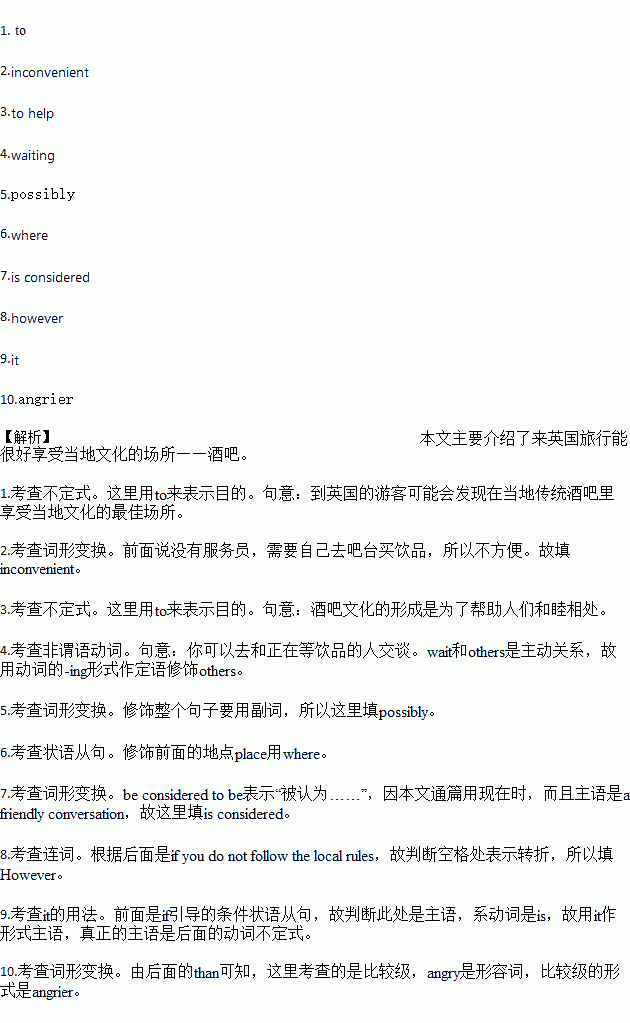题目内容
Visitors to Britain may find the best place1.enjoy local culture is in a traditional pub. But newcomers may get into trouble in these friendly pubs. Strangers may start with the difficulty of getting a drink. Most pubs have no waiters—you have to go to the bar (吧台) to buy drinks . This may sound2.(convenient), but English people are used to doing so.
Pub culture is formed3.(help) people get along with each other. Standing at the bar for service allows you to chat with others4.(wait) for drinks. The bar counter is5.(possible) the only place in Britain 6.a friendly conversation with strangers7.(consider) to be entirely proper and really quite normal behavior. 8., if you do not follow the local rules, you may fail to feel the local culture. For example, if you are in a big group, 9.is best for one or two people to go to buy the drinks. Nothing makes the regular customers and bar staff 10. (angry) than a group of strangers standing in front of the bar while they chat and wonder what to order.


 , or just does it 8. (bad). The purpose of schools, therefore, is not to teach languages, history, science etc., 9. to teach 10. (pupil) the way to learn.
, or just does it 8. (bad). The purpose of schools, therefore, is not to teach languages, history, science etc., 9. to teach 10. (pupil) the way to learn.